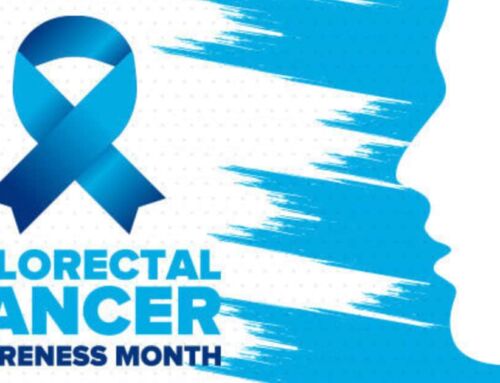Are you considering seeing a gastroenterologist in San Antonio, TX? In most cases, my recommendation to those experiencing things like stomach pain or other digestive symptoms is to see your primary doctor first and they can decide if the cause is less severe than anticipated or needs the attention of a GI specialist. However, if you don’t have a primary care physician or if you’re experiencing chronic ongoing GI issues, you should ask to be referred to a gastroenterologist or contact one directly that participates in your insurance network.
I often have conversations with first time patients where they let me know that they were unsure of what type of doctor to see for their symptoms, so I wanted to create an article that expanded on the 7 most common or urgent reasons to see a gastroenterologist.
My hope is that this content will help provide additional insight into digestive health issues and perhaps dispel some of the confusion, frustration and/or embarrassment these conditions can cause.
Russell Havranek, MD
What is a Gastroenterologist?
Before I delve into the 7 reasons to see a GI doctor in San Antonio, I wanted to briefly explain this medical specialty. The American College of Gastroenterology describes a gastroenterologist as a physician with dedicated training and unique experience in the management of diseases of the gastrointestinal tract. After a gastroenterologist finishes medical school, they spend 3 years training as an internal medicine physician. After this, they complete an additional 3-4 year specialty training program just dealing with diseases of the gastrointestinal tract.
We undergo intensive training in diagnostics and treatment of diseases of the esophagus, stomach, small and large bowel as well as diseases of the liver and pancreas. We also complete training in endoscopic procedures like upper endoscopy, colonoscopy and things like hemorrhoid banding. I received my medical degree from the University of Nebraska Medical Center and completed both my internal medicine residency and gastroenterology fellowship training at the University of Texas Health Science Center San Antonio.
Most Common Gastroenterology Conditions
There are many reasons that you may need the assistance of a gastroenterologist, but these are some of the main reasons people would see one:
- Colon Cancer Prevention – Detecting colon cancer in its early stages is the key to beating this cancer. I encourage everyone to discuss the screening guidelines with their doctor, so that we can stop colon cancer from occurring.
- Change in Bowel Habits – When you notice a change in your bowel habits (frequency or stool type), it is a good idea to document the changes and see a gastroenterologist to make sure it is not an indicator of a larger digestive condition.
- Rectal Bleeding – Seeing blood in the toilet or on toilet paper can be alarming. Most often the cause is hemorrhoids. However, since all bleeding is abnormal, you should see a doctor to make sure there is not a more severe underlying cause.
- Heartburn or GERD – Most people experience reflux during their lifetime. If your symptoms persist longer than a few weeks, I would recommend seeing a physician. You can learn more about this condition on the GERD webpage.
- Stomach Pain or Bloating – These frustrating symptoms can be caused by stress, medication reaction, diet and SIBO. You can read the webpages I’ve created to learn more about the causes, symptoms and when you should see a doctor for stomach pain and bloating.
- Inflammatory Bowel Disease (IBD) – This digestive condition involves chronic inflammation of all or part of your digestive tract. You should see a gastroenterologist if you experience persistent change in your bowel habits or have any of the symptoms associated with Crohn’s Disease or Ulcerative Colitis.
- Hemorrhoids – When veins in the rectum become distended we call them hemorrhoids. This is one of the more common conditions I see patients for. The good news is that hemorrhoids are typically easy to treat. To learn more causes and treatment options, I encourage you to visit the hemorrhoid FAQ page.
Prepare for your Gastroenterologist Appointment
Don’t be shy… gastroenterologist specialize in everything stomach and colon related, so my staff and I treat patients everyday with conditions that can be somewhat unpleasant or embarrassing to discuss. I can assure you that we’ve heard most everything, and that we treat all patients with discretion and respect.
That being said, the more information you can provide your gastroenterologist relative to your digestive conditions, the better care they can provide. Here is a list of things that your gastroenterologist would like to know:
- Let us know if you have a family history of colon cancer or any other digestive diseases like inflammatory bowel disease.
- If the color or consistency of your stools (poop) has changed, please describe this to the best of your ability.
- Describe your diet and if you have had any changes within the timeframe your symptoms started
- Bring with you any copies of records of prior work up or studies that have been done for us to review
- Describe your symptoms the best you can even if it feels like an embarrassing topic to talk about- the more you can describe the more we can help
Do I need a Referral to see a Gastroenterologist in San Antonio?
The short answer is… no you do not. If you feel you are having symptoms that are related to your gastrointestinal tract and think you would benefit from seeing a gastroenterologist you do not need a referral from your primary care physician unless you have an HMO insurance policy. All you need to do is call my office at 210-615-8308 or click the request an appointment tab on my website and we will call you. If you have gastrointestinal symptoms don’t just live with them, see someone. The majority of the time there are things that can be done to make your symptoms, and your life, better.






